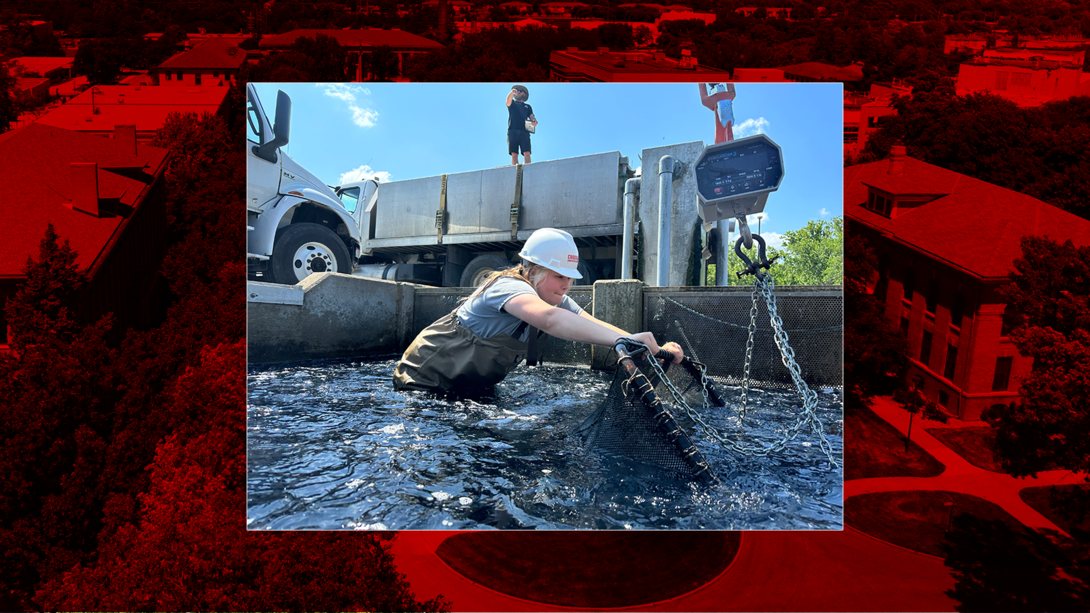
Share a bit about yourself.
I am a senior at UNL, originally from Arkansas. I started my academic career there and got my first two associate degrees. Afterwards, I made the decision to transfer to UNL because I wanted to study Fisheries and Wildlife, which wasn’t offered at the schools in Arkansas.
Could you share a bit about your internship this summer?
This summer, I was a fish hatchery management intern with the Missouri Department of Conservation. I was really excited to get the internship, especially since they had over 500 applications and only selected 14 interns. I am very proud to have made the cut! It has been a great experience and I have definitely learned so much from it.
What were your primary responsibilities and tasks on a day-to-day basis?
Typically, my mornings kicked off with meetings, followed by various tasks at the Shepherd of the Hills Fish Hatchery, which is the largest cold water trout rearing facility that Missouri runs.
At the hatchery, activities included regular rounds to identify and collect any dead fish we could spot, which we would then examine for potential diseases and parasites. This was crucial as we needed to run treatments upon confirming parasitic infections.
Aside from this, my routine tasks included general upkeep of the facility, such as maintaining cleanliness along walking trails and public access areas.
Could you provide some insights into the research project you worked on during your internship?
My research project entailed investigating how two different types of fish feed influenced the growth, mortality rates, and general well-being of the fish at our hatchery. To give some context, a few months ago, the Missouri Department of Conservation signed a contract with a new supplier for fish feed. However, it became apparent soon after that the larval fish were struggling to eat the larger-sized granules provided, as they were too big for them.
As a result, our project aimed to compare the effects of this particular brand of fish feed with another brand in terms of their impact on the overall health of the fish.
Thankfully, I didn’t identify any health problems among the fish in my project. However, we did identify the presence of certain diseases and parasites within the hatchery.
At present, I am still in the process of exploring the possibility of publishing a research paper to share the findings from my study.
What did you like the most about your internship?
I was most impressed by the level of professionalism and the opportunity to make connections at the Missouri Department of Conservation. In the conservation field, it is common to move around, so I know that these connections will be valuable for future references. I am excited to stay in touch with these people and collaborate with them again in the future.
Did you face any major challenges during your internship? If yes, how did you navigate them?
I’ve started getting used to Nebraska's colder weather, and being down in Missouri, where it is hot and humid, was quite a shift. Also, I must admit that the job turned out to be more physically taxing than I initially thought it would be, whereby there were days where I was out power washing tanks for eight hours straight. However, I was very proud of myself for being able to get through it and experience significant growth at the end of the day.
What message or advice would you like to share with fellow UNL students who are aspiring to pursue internships or careers in the field of Fish Hatchery Management and conservation?
I'd say keep your chin up and don't let things like housing and pay refrain you from pursuing internships and other opportunities elsewhere. My biggest struggle going down to Missouri was that I had to find my own housing, as the Missouri Department of Conservation did not provide that, and it was scary to move somewhere that I had never been all by myself but take the leap of faith because it is so worth it.







